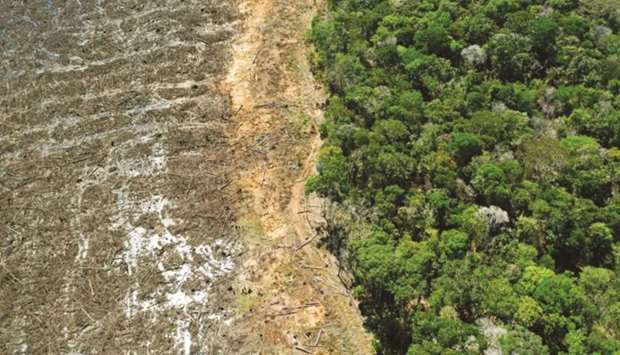Emerging-market nations are looking at issuing the first nature-linked bonds as part of talks involving the World Bank and major sovereign creditors to make their debt more sustainable.
The proposals aim to link new debt to targets for biodiversity and carbon emissions, according to Simon Zadek, chair of the Finance for Biodiversity Initiative, which published the plans yesterday.
Pakistan could be the first out of the blocks to issue such nature bonds.
The discussions on greening sovereign debt, involving the US, China, the UK and Germany, come as mitigating climate change and spending to recover from the pandemic have climbed to the top of the agenda for governments. Among the ideas are plans for an advisory hub to match borrowers with creditors, at a time of surging investor demand for environmental assets.
“This year provides an historic opportunity to harvest a double dividend by aligning sovereign debt relief with nature and climate outcomes,” said Zadek, who previously led a green finance task force for the United Nations. “The only reason we need this platform is because investment banks don’t know much about this subject.”
The group’s proposals would tie the cost of debt repayments to quantified biodiversity and emissions-reductions targets, meaning borrowers would have to pay less interest if they hit those. Countries might also be able to pay back debt using carbon credits.
Pakistan is set to use this system to issue a so-called nature-performance bond of up $1bn this year, according to Malik Amin Aslam, a climate-change adviser to Prime Minister Imran Khan. His government has been a heavy user of coal for power generation, yet aims to use greener energy and plant almost 10bn trees by 2023.
“We could actually tie our sovereign debt retirement to our nature-based performance,” Aslam said in an interview. “It’s a win-win for us, because it’s helping us do what we wanted to do but at the same time creating a novel instrument to finance that whole process.”
There’s already been a rush by governments around the world to issue record levels of green bonds, which mainly focus on funding clean energy projects. Poland issued the first sovereign green notes in 2016, saying it would use some of the proceeds for its natural parks.
“There’s trillions out there in pension funds and they’re begging for new products,” said Kevin P Gallagher, professor of global development policy at Boston University, who co-authored a January paper on green-debt relief. “The key thing is someone has to be a first mover.”
The new proposals aim to integrate nature and climate into sovereign debt more systemically, including with credit-rating agencies and investment banks that advise governments on their debt. The Finance for Biodiversity Initiative has also talked to lenders and asset managers to explore the best designs for these nature-performance bonds.
“Investors really want to push countries to be ambitious and for there to be a way for there to be consequences to actually meet targets,” said Fiona Stewart, lead financial sector specialist at the World Bank, adding the discussions were ongoing. “This is a really interesting potential way to do that if you can link sovereigns to these results.”

An view of a deforested area close to Sinop, Mato Grosso State, Brazil (file). Emerging-market nations are looking at issuing the first nature-linked bonds as part of talks involving the World Bank and major sovereign creditors to make their debt more sustainable.
